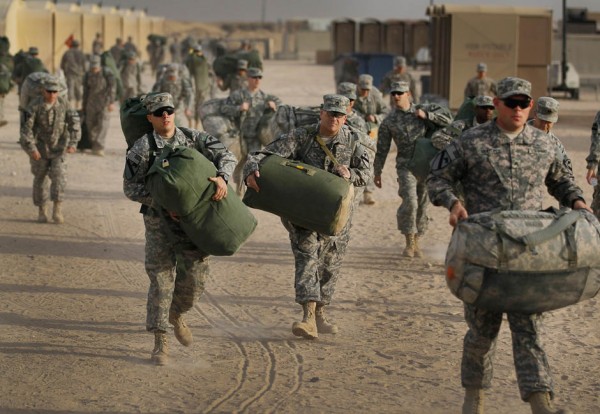Been off the blogosphere for the last month because of a project I was working on. Thought I’d get back into the saddle by looking into the latest on Afghanistan. On July 10th in response to a reporter’s question, Pentagon Press Secretary George Little said the surge had been a success.
In response to some additional, somewhat skeptical questions on how the strategy was implemented, Dr. Little remarked:
‘I challenge anyone in this room, and beyond this room, to find a respected military strategist in history who can say that any new military strategy can be implemented with perfection. That’s simply impossible.
‘This strategy has been very effectively implemented.
‘Has it been done to perfection? No, that’s entirely impossible — entirely impossible.
‘But it’s been done very well. And we have learned lessons along the way and we have quickly adapted. And we have adjusted our strategy and our tactics as appropriate in different parts of Afghanistan, and in our operations.
‘And I think the proof is in the pudding. And that is that we have a transition process that has been effective. We’re now entering a phase I think at the end of which 75 percent of Afghans will be under Afghan security lead. That is a major accomplishment.
‘These are the kind of metrics that we ought to be looking at, and not plausible but definitely alternative views of history and Monday morning quarterbacking.’
This brings me to what I’d like to blog about. Many outside of the military are unaware of the “Lessons Learned” process. Essentially after exercises, wars, and crisis, the military will examine what worked and what didn’t and how can the process be improved. The results are then published and widely distributed. During my time in the military these were generally classified. I was pleasantly surprised to find that on June 15th, the Department of Defense published an unclassified document called Decade of War Volume I, Enduring Lessons from the Past Decade of Operations in response to a request by General Dempsey, the Chairman of the Joint Chiefs of Staff. The General wanted to “make sure we actually learn the lessons from the last decade of war.”
The publication began by stating:
In general, operations during the first half of the decade were often marked by numerous missteps and challenges as the US government and military applied a strategy and force suited for a different threat and environment. Operations in the second half of the decade often featured successful adaptation to overcome these challenges.
The report identified 11 areas:
Understanding the Environment: A failure to recognize, acknowledge, and accurately define the operational environment led to a mismatch between forces, capabilities, missions, and goals.
- Conventional Warfare Paradigm: Conventional warfare approaches often were ineffective when applied to operations other than major combat, forcing leaders to realign the ways and means of achieving effects.
- Battle for the Narrative: The US was slow to recognize the importance of information and the battle for the narrative in achieving objectives at all levels; it was often ineffective in applying and aligning the narrative to goals and desired end states.
- Transitions: Failure to adequately plan and resource strategic and operational transitions endangered accomplishment of the overall mission.
- Adaptation: Department of Defense (DOD) policies, doctrine, training and equipment were often poorly suited to operations other than major combat, forcing widespread and costly adaptation.
- Special Operations Forces (SOF) – General Purpose Forces (GPF) Integration: Multiple, simultaneous, large-scale operations executed in dynamic environments required the integration of general purpose and special operations forces, creating a force-multiplying effect for both.
- Interagency Coordination: Interagency coordination was uneven due to inconsistent participation in planning, training, and operations; policy gaps; resources; and differences in organizational culture.
- Coalition Operations: Establishing and sustaining coalition unity of effort was a challenge due to competing national interests, cultures, resources, and policies.
- Host-Nation Partnering: Partnering was a key enabler and force multiplier, and aided in host-nation capacity building. However, it was not always approached effectively nor adequately prioritized and resourced.
- State Use of Surrogates and Proxies: States sponsored and exploited surrogates and proxies to generate asymmetric challenges.
- Super-Empowered Threats: Individuals and small groups exploited globalized technology and information to expand influence and approach state-like disruptive capacity.
The “Lessons Learned” process is probably where the common criticism that the military always trains to fight like it did during the last war comes from. In the publication it talks about most of the wars and crisis of the last 10 years saw operations that involved other than major operations and suggest this might be how future conflicts will be fought. I’m of the mind that you can’t predict the future and what the next conflict will be hence it’s necessary to maintain a military that can deal with and defeat threats across a wide spectrum to include conventional threats, counter insurgency, piracy, cyber, etc. How the Defense Department will be able to do this in an environment of budget cuts remains to be seen. As always, my views are my own.
